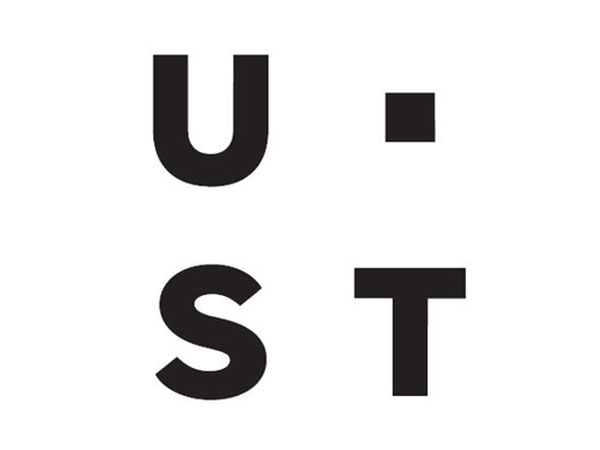UST AI Report: 93 per cent of Large Companies View AI as Essential to Success, but More Than Three-quarters Face a Severe Talent Shortage
Aug 20, 2024
PRNewswire
Bengaluru (Karnataka) [India], August 20: New research commissioned by UST, a leading digital transformation solutions company, finds that most organizations are clearly on board the AI (artificial intelligence) ship but lack a skilled AI workforce and need a compass to help navigate these uncharted waters. Obstacles to effective implementation frequently include a lack of in-house AI skills, increasingly complex regulatory requirements, and rising ethical concerns. These factors create uncertainty, slowing AI implementation and preventing the technology from reaching its full potential. This comprehensive survey on AI in the Enterprise surveyed 600 senior IT decision-makers in large companies ($500m+ revenue) across the US, UK, India, and Spain. The companies surveyed represent a combined revenue of more than $10 trillion.
* 76% of respondents cite a severe shortage of AI-skilled personnel; companies urgently need help to upskill their workforce and support to facilitate AI adoption.
* 92% of survey respondents agree that AI implementation aligns with their strategic goals. However, only 5% reported no significant challenges in deployment.
* Fewer than 40% of organizations have confidence in their responsible AI framework, and approximately 70% are concerned that a lack of diversity within their AI workforce leads to biased outcomes.
The research uncovered three significant findings:
1. Clear management buy-in: AI enablement continues to be of paramount importance for large businesses, with more than half (54%) using and integrating AI throughout their organizations, nearly a third (28%) using it throughout the business but in an unstructured way, and 16% just starting to experiment with AI. Only 1% do not use AI and they have no plans to do so. Significantly, 92% say their company's AI implementation aligns with their strategic goals, and 93% believe AI will be essential to success in the next five years. However, only a small portion, 8%, said that they do not face barriers to these goals. Despite the broad recognition of AI's importance and strategic value, this highlights a significant challenge: most organizations encounter substantial obstacles that hinder AI implementation. Finally, approximately 9 in 10 (89%) say their organization needs to increase spending on AI implementation to keep up with its competitors.
2. Significant roadblocks remain: 44% described the AI implementation process as challenging, citing security concerns (40%), a shortage of in-house expertise (33%) and compliance and regulatory challenges (33%) as the top issues. The lowest-ranking barrier was "No clear understanding of the benefits" (14%), showing that there is clear consensus on the value of AI.
Looking more closely at concerns around the skills shortage, more than three-quarters (76%) say there is a severe shortage of AI-skilled personnel within their organization. Consequently, almost 9 in 10 (89%) say their organization needs external guidance on implementing AI effectively, with more than half (57%) planning to engage with external third-party AI expertise in the next three years.
Two-thirds (67%) believe there are insufficient external advisors focusing on AI implementation, and more than a third (38%) consider external expertise less expensive than in-house. Furthermore, nearly a third (31%) of respondents cannot upskill their own workforce.
3. Lack of tools to navigate the complexity of ethics, regulation, and diversity concerns: 9 in 10 (91%) agree that their organization must have a responsible AI framework/policy. However, fewer than 4 in 10 (39%) consider their current approach "very effective". Additionally, more than 9 in 10 believe more regulation is required for successful and responsible AI implementation in their industry (91%) and in companies across all industries (92%). The main reasons for this regulation should be to ensure data privacy (62%), better transparency (57%), and ethical usage (55%). Respondents say neither their government (71%) nor industry (64%) is doing enough regarding AI regulation.
Regarding their AI workforce, 80% say that diversity is crucial or very important. However, 32% believe their AI team is lacking diversity. In addition, 70% are concerned that this lack of diversity leads to biased outcomes.
"AI is a groundbreaking technology already accelerating innovation across industry sectors, improving productivity, and redefining what is possible in unimaginable ways. This research comprehensively shows AI's myriad benefits and challenges for businesses. By shining a light on the dominant hurdles to effective AI integration, we hope to help enterprises identify the right tactics and facilitate greater adoption of AI," said Krishna Sudheendra, Chief Executive Officer, UST.
Other key findings include:
- AI spending and ROI: 1 in 20 (5%) currently spend more than half of their technology budget on AI implementation - but almost 1 in 5 (18%) predict they will spend at this level within three years. On average, organizations expect to see a return on investment in AI technology in approximately two years. However, almost a quarter (23%) expect this to take four or more years.
- ESG benefits of AI: Almost 9 in 10 (89%) believe AI can help their organization work toward their net zerogoals, and a similar proportion say that AI has significant ESG benefits (91%). Respondents believe AI improves sustainability measurements and reporting (68%), reduces carbon emissions/accelerates efforts to reach net zero (58%) and reduces resource consumption (55%).
"The absence of mature AI governance frameworks is a glaring problem that enterprises can no longer ignore. 90% of those surveyed agree that robust regulations are needed to guide its development and mitigate risks as AI becomes deeply embedded in society. Soon, AI regulations and privacy-first AI will become essential to modern platforms, with algorithmic transparency, explainability, and risk metrics ensuring that only ethically designed AI systems earn public trust. These findings show that we must accelerate efforts to develop and implement sound AI governance policies to create a future where AI systems fulfill their potential as powerful for the common good," said Adnan Masood, Chief Architect - AI & Machine Learning, UST.
To help create that future, UST recently launched a groundbreaking initiative to train more than 25,000 employees - approximately 80% of its workforce - with cutting-edge Generative AI skills and knowledge. The program was announced just months after the unveiling of UST AlphaAI, which consolidates the company's AI offerings to enhance business agility, streamline operations, and accelerate digital transformation journeys.
The AI in the Enterprise report, downloaded here, contains country-specific data findings for the USA, the UK, India, and Spain.
NOTES TO EDITORS
Survey methodology
This research was conducted online by FTI Consulting during March-April 2024. It involved the opinions of n=600 senior IT decision makers in large companies with a minimum of $500 million annual revenue in the USA, UK, India, and Spain (n=150 in each) across a range of industry sectors, which included technology, financial services, manufacturing, retail, and energy. For more information about the methodology, please contact stratcommresearchemea@fticonsulting.com.
About UST
For more than 24 years, UST has worked side by side with the world's best companies to make a real impact through transformation. Powered by technology, inspired by people, and led by our purpose, we partner with our clients from design to operation. Through our nimble approach, we identify their core challenges, and craft disruptive solutions that bring their vision to life. With deep domain expertise and a future-proof philosophy, we embed innovation and agility into our clients' organizations--delivering measurable value and lasting change across industries, and around the world. Together, with over 29,000 employees in 30+ countries, we build for boundless impact--touching billions of lives in the process. Visit us at www.UST.com.
Media Contacts, UST:
Tinu Cherian Abraham
+1 (949) 415-9857
Merrick Laravea
+1 (949) 416-6212
Neha Misri
+44-7341787926
Roshini Das K
+91-7736795557
media.relations@ust.com
Media Contacts, India:
Adfactors PR
ust@adfactorspr.com
Media Contacts, U.S.:
S&C PR
+1-646.941.9139
media@scprgroup.com
Makovsky
ust@makovsky.com
Media Contacts, U.K.:
FTI Consulting
UST@fticonsulting.com
Logo: https://mma.prnewswire.com/media/1422658/UST_Logo.jpg
(ADVERTORIAL DISCLAIMER: The above press release has been provided by PRNewswire. ANI will not be responsible in any way for the content of the same)



![Dr. Raghupati Singhania, CMD, JK Tyre & Industries and jury members presented Indian Car of the Year [ICOTY] 2025 award to Mahindra & Mahindra team](https://worldnewsn.s3.amazonaws.com/media/images/ANI-20250111122719.jpg)




